How to Use MakeMyTrip Hotel Price Data Dataset for Maximum Benefits?
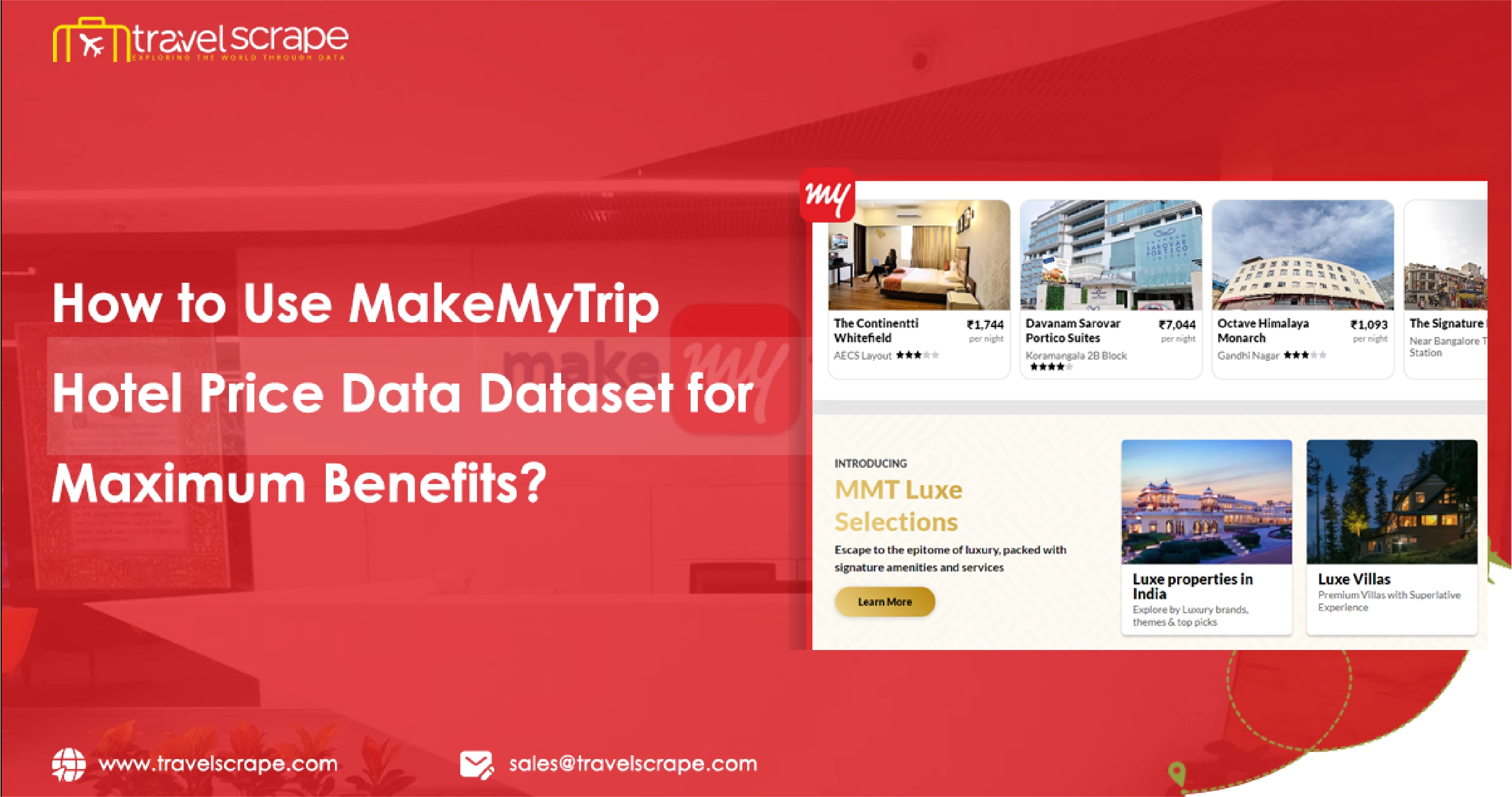
Introduction
In today's digital era, data is the cornerstone of decision-making across various industries. The hospitality industry is no exception, and having access to comprehensive datasets can significantly enhance business strategies and consumer experiences. One such valuable dataset is the MakeMyTrip hotel data scraping. This dataset provides extensive information about hotel prices in various cities across India, offering numerous applications and benefits for businesses, researchers, and consumers alike. In this detailed blog, we will explore the MakeMyTrip Hotel Price Data Dataset, its uses, benefits, and the process of scraping hotel pricing data from MakeMyTrip.
Understanding the MakeMyTrip Hotel Price Data Dataset
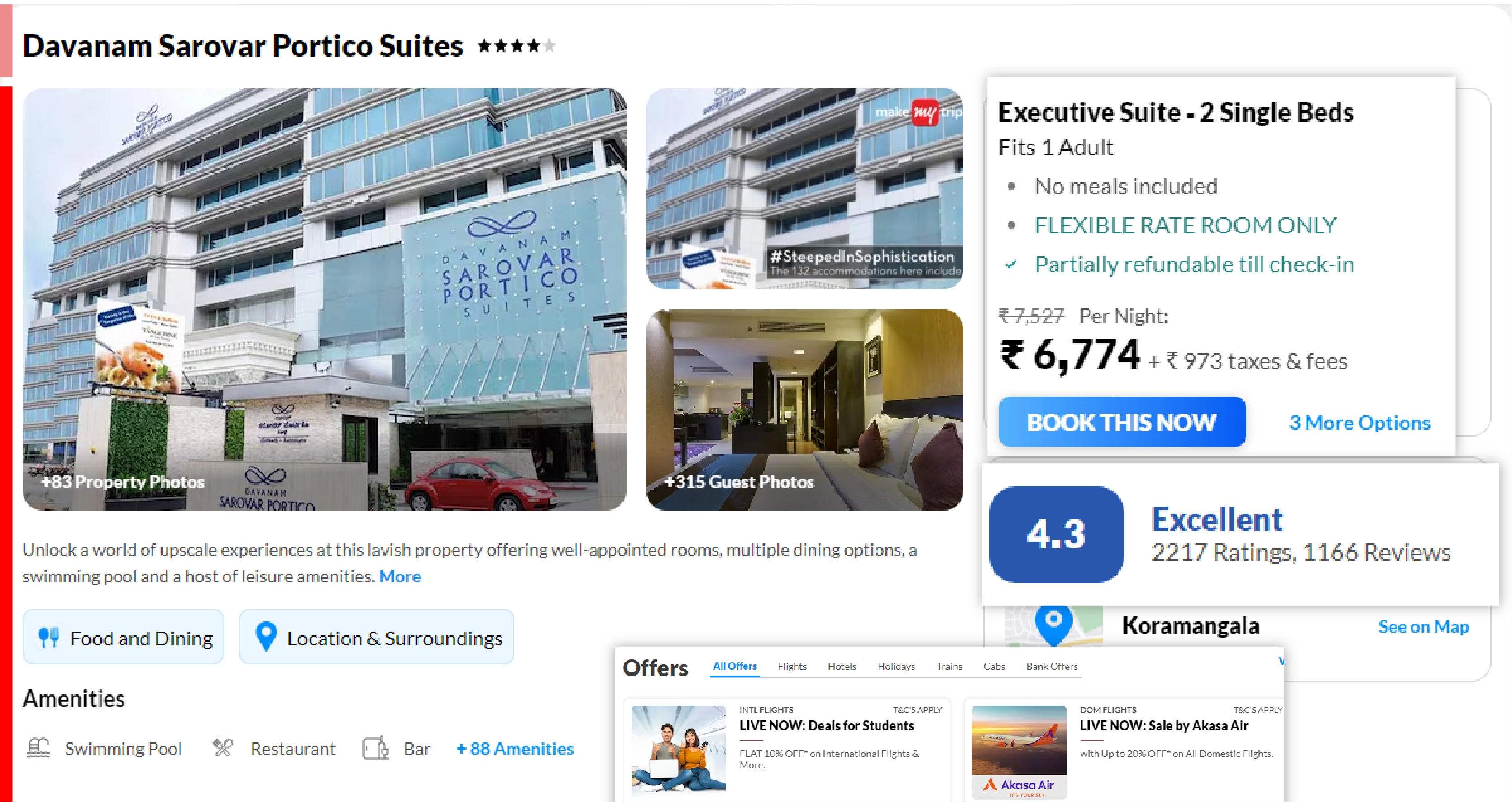
What is MakeMyTrip?
MakeMyTrip is one of India's leading online travel companies, providing a comprehensive range of travel services. Founded in 2000, it offers flight bookings, hotel reservations, holiday packages, rail and bus tickets, and car rentals. The platform aggregates data from various airlines, hotels, and travel service providers, enabling users to compare prices, read reviews, and make informed travel decisions. With a user-friendly interface and extensive service network, MakeMyTrip caters to both domestic and international travel needs, making it a go-to resource for travelers seeking convenience and competitive pricing.
What is the MakeMyTrip Hotel Price Data Dataset?
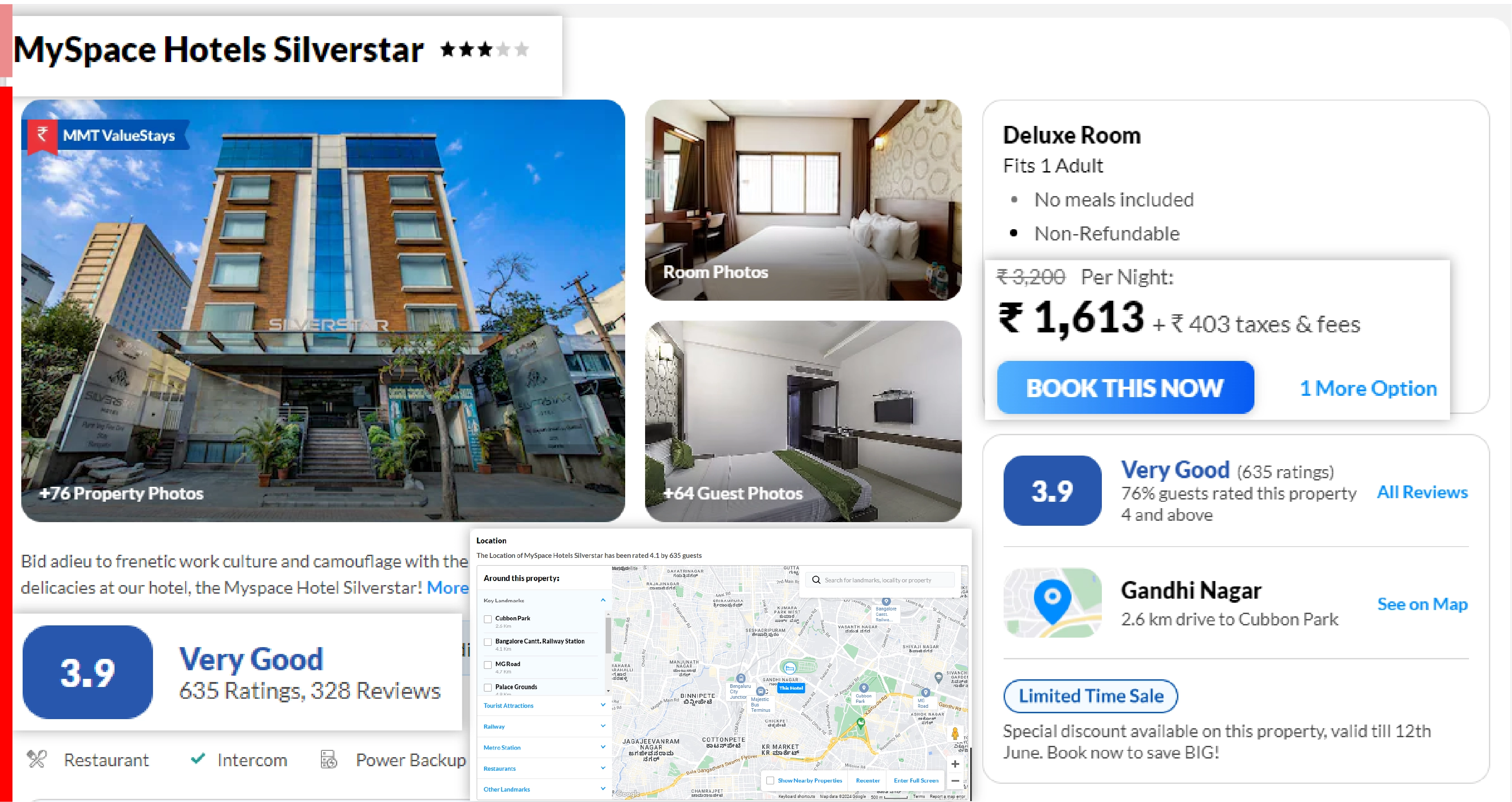
The MakeMyTrip Hotel Price Data Dataset is a comprehensive collection of hotel pricing information sourced from MakeMyTrip, one of India’s leading online travel companies. This dataset encompasses detailed hotel price data of cities in India, providing valuable insights into the cost of accommodations across various locations. Here’s an in-depth look at the components and significance of this dataset:
Components of the Dataset
Hotel Name: The name of the hotel, which helps in identifying and differentiating between various properties.
Location: The specific city and area where the hotel is situated, offering a geographical context.
Price: The cost per night for different room types, providing a clear picture of the pricing structure.
Rating: User ratings and reviews, which reflect the quality and popularity of the hotel.
Amenities: A list of facilities and services offered by the hotel, such as free Wi-Fi, swimming pool, breakfast, etc.
Availability: Information on room availability for specific dates, crucial for planning and booking.
Uses of the MakeMyTrip Hotel Price Data Dataset
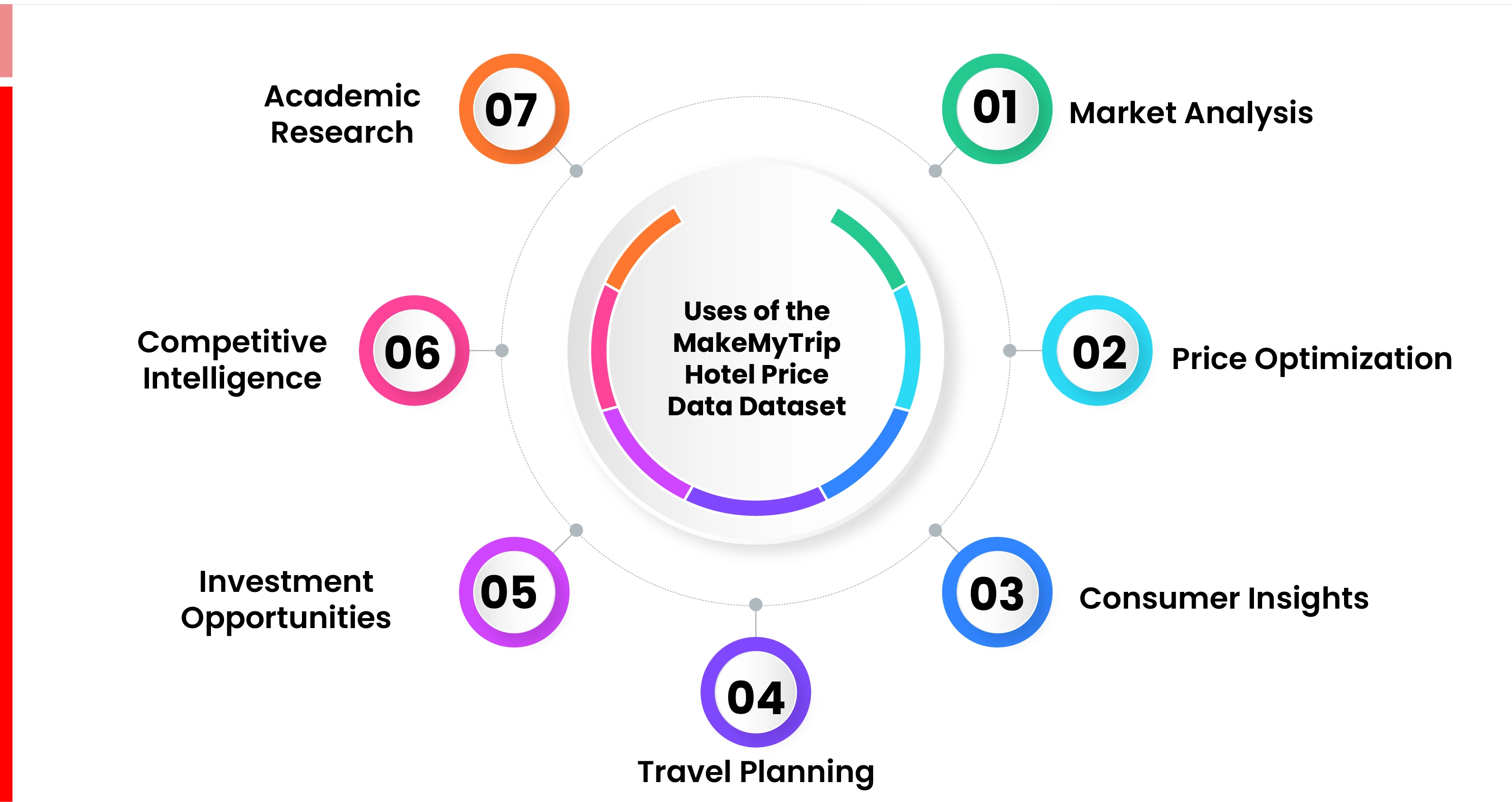
To scrape hotel price data of cities in India is a treasure trove of information that offers numerous applications and benefits across different sectors. Here are some of the key uses of this dataset:
Market Analysis
Businesses in the hospitality industry can use the MakeMyTrip hotel data scraping to conduct detailed market analysis. By examining pricing strategies across various hotels and cities, companies can identify trends, assess market demand, and position themselves competitively. This dataset allows businesses to understand the pricing landscape and make informed decisions about their pricing models and promotional strategies.
Price Optimization
Hotels can leverage this dataset to optimize their pricing strategies. By comparing their prices with those of similar hotels in the same location, they can adjust their rates to remain competitive. The data on amenities and ratings also helps in determining the value-added services that can justify higher prices. Effective price optimization can lead to increased occupancy rates and higher revenue.
Consumer Insights
Researchers and marketers can gain valuable consumer insights by analyzing the hotel price data of cities in India dataset. Understanding consumer preferences, such as favored amenities, price sensitivity, and rating trends, allows businesses to tailor their offerings to better meet customer needs. This data-driven approach can enhance customer satisfaction and loyalty.
Travel Planning
For travelers, the MakeMyTrip hotel data scraping is an invaluable resource for planning trips. By scraping hotel price data of cities in India, travelers can compare prices, amenities, and ratings to find the best deals and accommodations that fit their budget and preferences. This ensures a well-informed and cost-effective travel experience.
Investment Opportunities
Real estate investors can utilize this dataset to identify lucrative investment opportunities in the hospitality sector. Analyzing hotel pricing data from MakeMyTrip helps investors understand market demand, seasonal trends, and pricing dynamics across different cities. This information is crucial for making strategic investment decisions and maximizing returns.
Competitive Intelligence
Travel aggregators and online travel agencies can benefit from MakeMyTrip hotel data scraping to gather competitive intelligence. By continuously monitoring pricing and availability data, they can adjust their strategies, improve their offerings, and stay ahead in the competitive market.
Academic Research
Academics and researchers can use the dataset for various studies related to tourism, economics, and consumer behavior. The rich data provides a basis for empirical research, helping to uncover patterns and correlations in the hospitality industry.
In summary, the MakeMyTrip hotel data scraping is a versatile and powerful tool that can drive strategic decisions, optimize operations, and enhance customer experiences across the hospitality and travel sectors.
Benefits of the MakeMyTrip Hotel Price Data Dataset
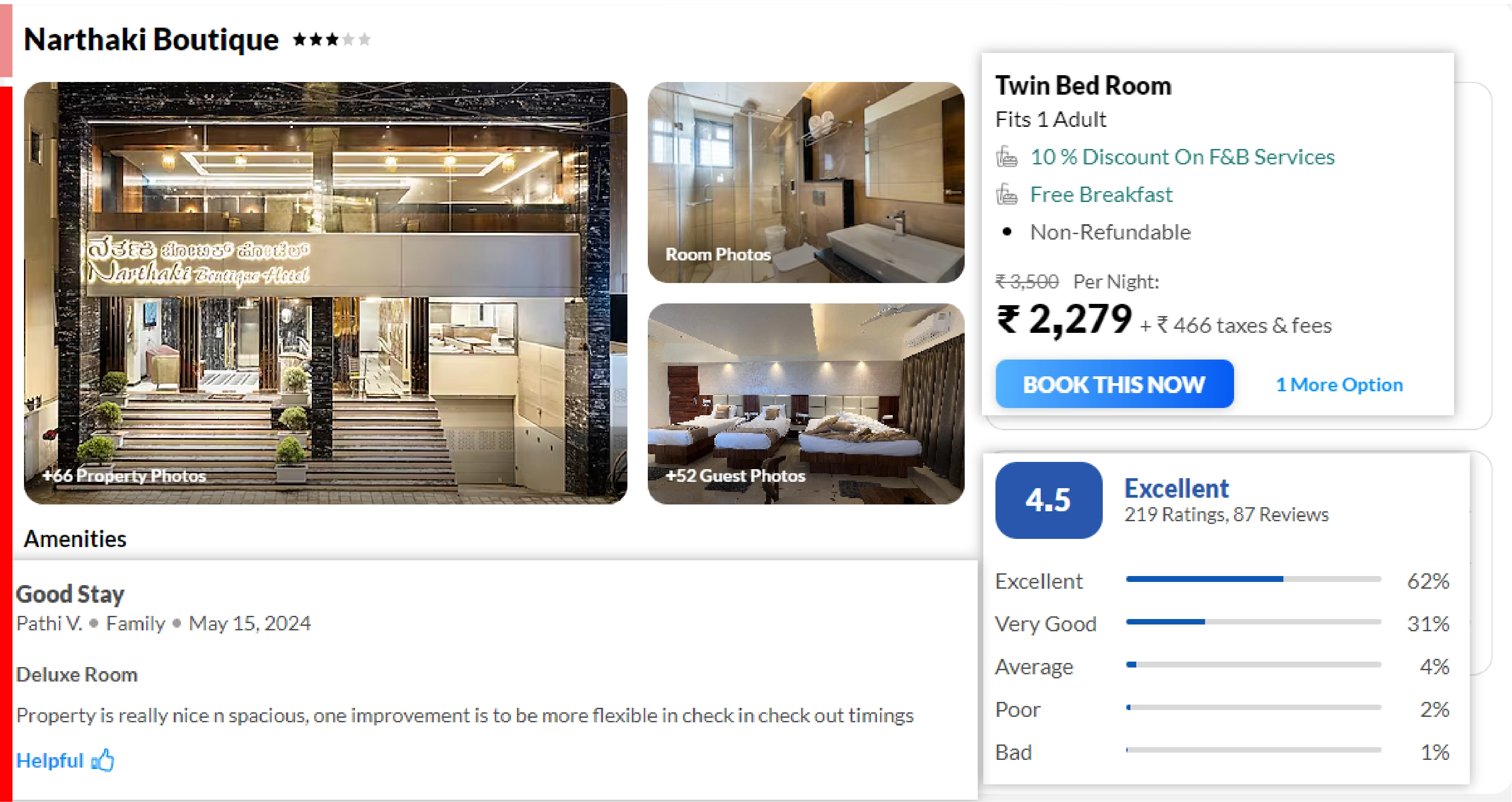
The MakeMyTrip hotel price data dataset offers a wealth of benefits for various stakeholders, including businesses, researchers, and travelers. Here’s an in-depth look at how leveraging this dataset can be advantageous:
Comprehensive Market Insights
The MakeMyTrip hotel price data dataset provides comprehensive insights into the pricing structures of hotels across different cities in India. Businesses can use this data to gain a deep understanding of market trends, competitive pricing, and consumer preferences. By analyzing this information, companies can make data-driven decisions to stay competitive in the hospitality market.
Enhanced Price Optimization
Hotels can benefit from the MakeMyTrip hotel price data dataset by optimizing their pricing strategies. By comparing their rates with those of competitors, hotels can adjust their prices to remain attractive to potential customers. Additionally, the dataset includes information on amenities and ratings, which can be used to justify premium pricing or promotional offers, ultimately leading to increased revenue and occupancy rates.
Improved Consumer Experience
Scraping hotel price data of cities in India allows businesses to understand what consumers value most in their hotel stays. This knowledge enables hotels to tailor their services and offerings to meet customer expectations, enhancing overall satisfaction. For travelers, having access to this dataset means being able to find the best deals and accommodations that align with their preferences and budget.
Strategic Investment Decisions
Investors in the real estate and hospitality sectors can leverage the hotel price data of cities in India dataset to identify profitable investment opportunities. By analyzing pricing trends and demand patterns, investors can make informed decisions about where to allocate their resources for maximum returns. This strategic approach minimizes risks and enhances investment outcomes.
Competitive Intelligence
Travel aggregators and online travel agencies can use MakeMyTrip hotel data scraping to gather competitive intelligence. Continuously monitoring hotel pricing and availability data helps these businesses adjust their strategies, improve their offerings, and maintain a competitive edge in the market. This ongoing analysis ensures that they stay relevant and attractive to consumers.
Academic Research
The dataset is a valuable resource for academic researchers studying tourism, hospitality management, and consumer behavior. The rich data provides a basis for empirical research, helping scholars uncover trends, correlations, and insights that can contribute to the body of knowledge in these fields.
Real-Time Data Access
Scraping hotel pricing data from MakeMyTrip provides real-time access to pricing information, ensuring that businesses and consumers make decisions based on the most current data available. This timeliness is crucial in the fast-paced travel and hospitality industry, where prices and availability can change rapidly.
How to Scrape Hotel Pricing Data from MakeMyTrip?
Tools Required
To scrape hotel pricing data from MakeMyTrip, you will need:
Python: A programming language commonly used for web scraping.
Selenium: A web scraping tool that automates browser interactions.
BeautifulSoup: A library for parsing HTML and extracting data.
Step-by-Step Guide
Install Required Libraries
First, install the necessary libraries using pip:
pip install selenium beautifulsoup4Set Up Selenium WebDriver
Download and install the ChromeDriver for Selenium. Ensure that it is in your system's PATH.
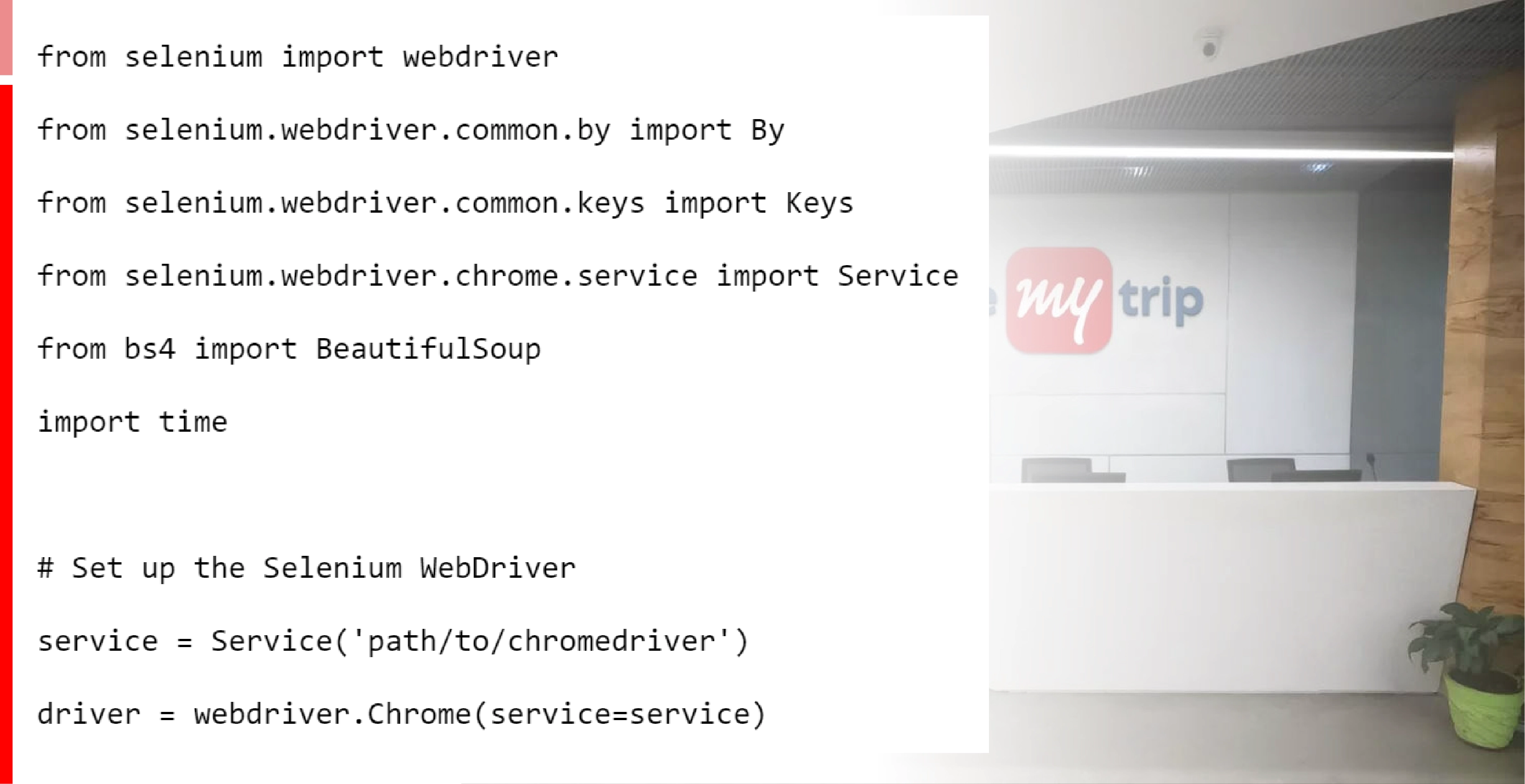
Define the Scraping Function
Create a function to scrape hotel pricing data from MakeMyTrip:
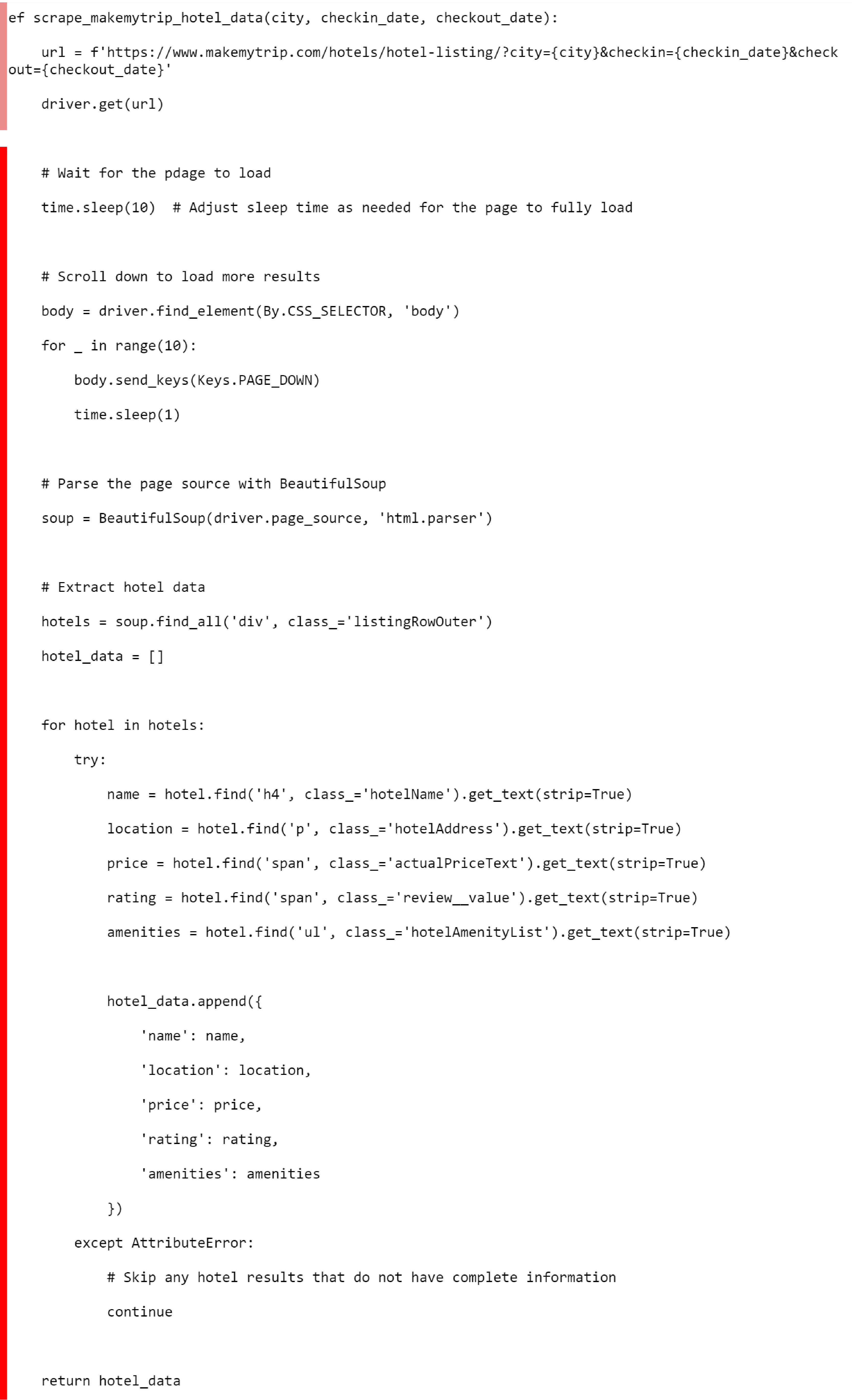
Example Usage
Use the function to scrape hotel data for a specific city and date range:
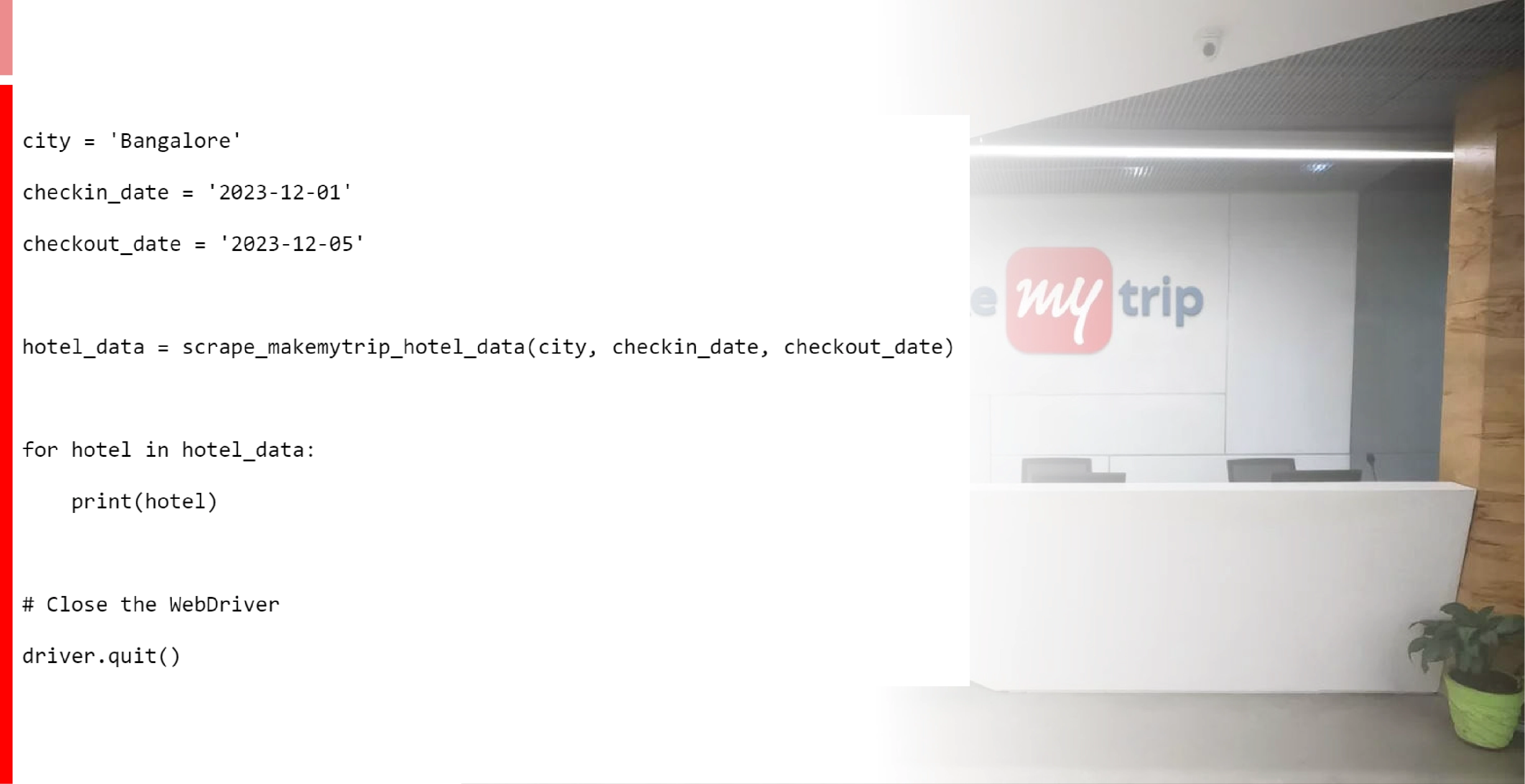
Conclusion
The MakeMyTrip Hotel Price Data Dataset proves invaluable for businesses, researchers, and consumers alike. When you scrape mobile travel app data, you can unlock actionable insights into market trends, refine pricing strategies, and elevate the overall travel experience. Whether you're a hotelier striving for competitiveness, a researcher dissecting market dynamics, or a traveler hunting for the finest deals, this dataset offers the comprehensive information requisite for success.
Scraping hotel pricing data from MakeMyTrip entails setting up a robust web scraping environment employing tools like Selenium and BeautifulSoup. Defining the scraping logic and upholding ethical practices are paramount. Armed with these tools and techniques, the MakeMyTrip Hotel Price Data Dataset emerges as a potent instrument in optimizing decisions and outcomes within the travel aggregators.